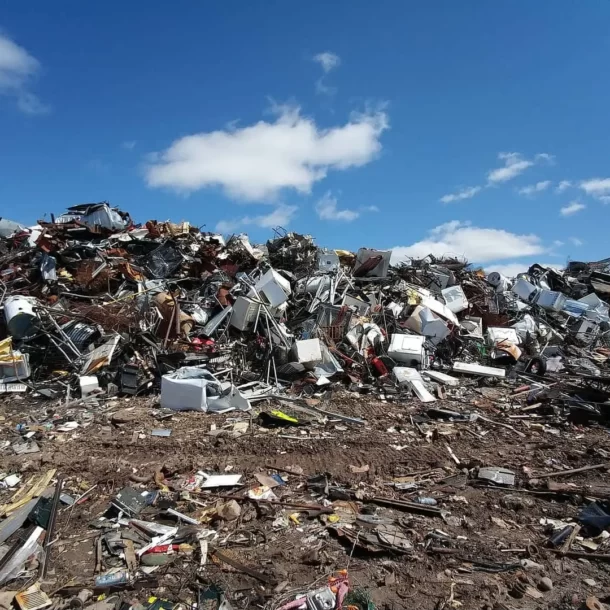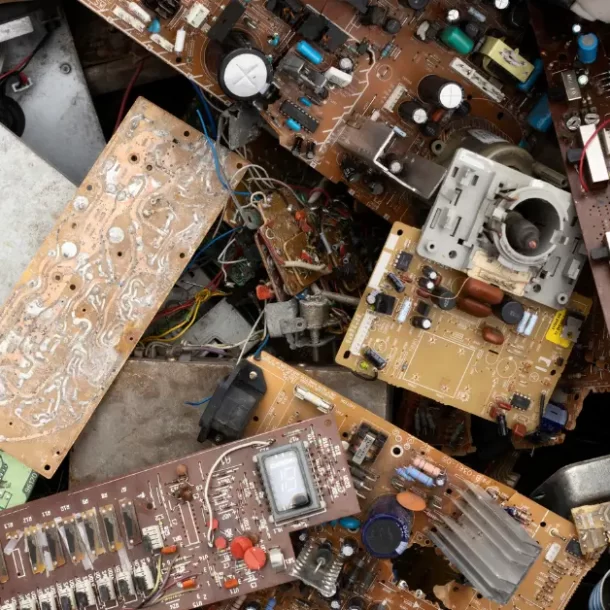
The Global E-waste Crisis: Causes and Consequences
Global E-waste: Causes & Consequences is a pressing issue that demands attention in today’s world. The pervasive use of technology in our daily lives has contributed to a rapid increase in electronic waste, or e-waste. As computers, televisions, cell phones, and various other electronic devices are discarded, the volume of e-waste generated has surged significantly. However, the improper disposal of these devices has led to a critical global e-waste crisis, giving rise to serious social, economic, and environmental ramifications.

The Current State of E-waste Management Globally and the Challenges Associated with it
E-waste recycling is a complex issue, and there are many challenges associated with it. One of the biggest challenges is the lack of regulation in many countries. Many countries do not have specific laws regulating the disposal of electronic waste, which means that o often ends up in landfills or is illegally dumped. In addition, many countries lack adequate infrastructure to properly manage e-waste. There are also low levels of awareness among the general public about the importance of proper e-waste management.
The Global Trends and Patterns of E-waste Generation, Management, and Disposal
E-waste is generated in all parts of the world, but there are significant differences in the amounts generated by developed and developing countries. Developed countries generate a much larger amount of e-waste per capita, but developing countries are often the destination for much of this waste due to cheaper labor and less regulation. In addition, there are both formal and informal sectors involved in e-waste management. The formal sector includes e-waste recycling companies that follow environmentally sound practices, while the informal sector consists of individuals and small businesses that collect, repair, and sell used electronics. The informal sector often employs hazardous practices and causes serious environmental and health hazards.

The Social, Economic, and Environmental Consequences of Poor E-waste Management
The issue of global e-waste is a growing concern, as poor e-waste management has significant causes and consequences. One of the major consequences of improper disposal of e-waste is the release of hazardous chemicals and heavy metals into the environment. This can lead to water and air pollution, posing serious health risks for individuals living near e-waste dumping sites. Moreover, it can negatively impact the ecosystem as a whole, causing irreversible damage to wildlife and vegetation.
To address this global issue, it is crucial to implement effective e-waste management strategies, including proper disposal and recycling of e-waste. Governments, businesses, and individuals all have a role to play in promoting responsible e-waste management practices. By doing so, we can help to mitigate the negative consequences of poor e-waste management and promote a more sustainable future for all.
The Potential Solutions and Initiatives to Address the E-waste Crisis
There are several potential solutions and initiatives that can be taken to address the e-waste crisis. One approach is extended producer responsibility (EPR), which requires manufacturers to take responsibility for the end-of-life disposal of their products. Another approach is the circular economy, which aims to keep resources in use for as long as possible, reduce waste, and create a closed-loop system. Green design is another approach, which involves designing products with end-of-life disposal in mind, with the goal of creating products that can be easily recycled or repurposed.
Global Trends and Patterns of e-waste generation and Management
The global trends and patterns of e-waste generation, management, and disposal vary greatly between developed and developing countries. Developed countries tend to generate a larger amount of e-waste per capita while developing countries often serve as the destination for much of this waste due to cheaper labor and less regulation. In addition, there are both formal and informal sectors involved in e-waste management, with the formal sector consisting of e-waste recycling companies that follow environmentally sound practices, and the informal sector consisting of individuals and small businesses that collect, repair, and sell used electronics. The informal sector often employs hazardous practices and causes serious environmental and health hazards. The global trends and patterns of e-waste management and disposal highlight the need for improved regulation, infrastructure, and awareness to address the growing e-waste crisis.
The global e-waste crisis is a complex issue that requires coordinated efforts from governments, manufacturers, and consumers to address. Proper e-waste management is critical for protecting human health, preserving the environment, and ensuring a sustainable future. By implementing measures such as EPR, circular economy principles, and green design, we can work towards a future where electronic devices are recycled and reused, and e-waste is no longer a crisis. E-waste recycling companies in India and other parts of the world can play a crucial role in this effort by implementing environmentally sound practices and contributing to a more sustainable future.




